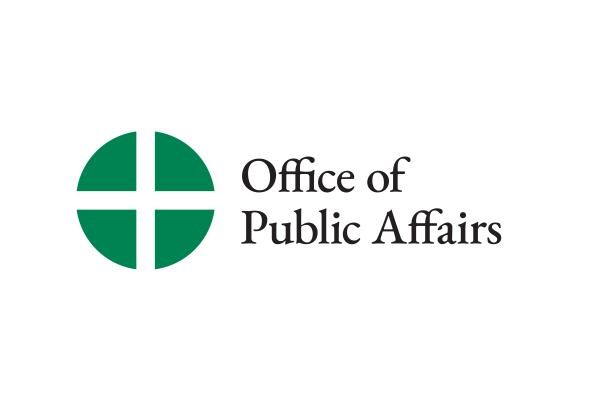West Coast Muslim-Catholic Dialogue Discusses Prophets In Ongoing Comparison Of Sacred Texts
WASHINGTON—The 13th annual WestCoast Muslim-Catholic Dialogue continued its study of sacred texts withpresentations on the prophets Hud and Habbakuk as well as a joint discussion onthe qualities of the believer in Islam and Catholicism.
WASHINGTON—The 13th annual WestCoast Muslim-Catholic Dialogue continued its study of sacred texts withpresentations on the prophets Hud and Habbakuk as well as a joint discussion onthe qualities of the believer in Islam and Catholicism. The meeting was held atthe Center for Spiritual Development in Orange, California on May 22-23. BishopCarlos Sevilla, S.J., retired bishop of Yakima, Washington, and Imam MuzammilH. Siddiqi, Ph.D., of the Islamic Society of Orange County, presided.
Siddiqi lectured on the life andmessage of the prophet Hud in the Islamic tradition. Siddiqi identified this prophetfrom the third millennium before the birth of Christ as living a fewgenerations after Noah and hailing from a wealthy tribe of Ad in southernArabia. Muslim tradition teaches that he was a model of uprightness and waschosen by God to warn the people of Ad to turn away from their descent intoimmorality. Having failed to listen to this prophet, their city was destroyedand passed into legend until 1992 when archaeologists discovered a city buriedin the sands of southern Arabia that perfectly corresponded to the descriptionof Ad in the Qur’an.
Siddiqi noted that “the refusal ofthe people to listen to Hud’s warnings led to a catastrophe, which the Qur’anrefers to as ‘the inevitable hour’ awaiting civilizations that stray from the waysof truth and justice.” The prophet Hud is esteemed by Muslims today as aprototype “for prophetic messages and guidance for all times to come. Hud giveshope that justice will prevail over oppression.”
Father Alexei Smith lectured on theprophet Habbakuk in the Catholic tradition. In the manner of Hud, Smithcontended, Habbakuk emerges in history at a time of considerable stress betweenGod and the people of Israel. The message conveyed to believers across thecenturies is that God’s truth takes time to unfold even in the midst ofappalling evil. What is required is patience, which produces endurance andincreases faithfulness and utter dependence on God. Father Smith acknowledgedthat while “it is difficult for one to accept this teaching, and difficult aswell for pastors and religious leaders to counsel patience in the midst ofimmediate suffering,” enduring evil, according to Habbakuk, can be turned intoan opportunity for faithful witness to the saving power of God.
The second part of the meetingaddressed the qualities of the believer in Islam and Catholicism. Imam TahaHassane identified the six principles of faith for Muslims. This faith, al-Iman,is translatable as a personal acceptance that is informed by a right understandingof each principle. However, such an acceptance must be accompanied byal-Islaam, which means the practical application of each principle. Hassane emphasizedthat belief without practice is considered weak in Islam. There is a greatemphasis in Islam on personal commitment to faith with righteous actions. Fromthe Catholic side of the question, Msgr. Dennis Mikulanis argued that thequalities of the believer similarly require an absolute submission to the willof God as conveyed through God’s Word, Jesus Christ. However, obeying the lawof God requires more than doing good actions. He asserted that “in order to bea disciple of Jesus it is not enough just to obey the commandments but to turnone’s life over to God and the proclamation of the Good News.”
In addition to the co-chairs, thosepresent at the meeting included Muslim participants Imam Mostafa Al-Qazwini ofthe Islamic Educational Center of Orange County; Hussam Ayloush, executive directorof the Council on American-Islamic Relations (CAIR), Greater Los Angeles area;Kalim Farooki of Corona; Iftekhar A. Hai of United Muslims of AmericaInterfaith Alliance; Imam Taha Hassane of the Islamic Center of San Diego;Sherrel A. Johnson, community relations manager and assistant to the directorof CAIR, Greater Los Angeles Area; Imam Jerrel Abdul Salaam of Paramount,California; and Maria Khani. Additional Catholic participants included FatherAl Baca, Diocese of Orange; Father Michael F. Kiernan, Diocese of Sacramento;Msgr. Dennis L. Mikulanis, Diocese of San Diego; Father Jose A. Rubio, Dioceseof San Jose; Rt. Rev. Alexei Smith, Archdiocese of Los Angeles; Dr. AnthonyCirelli, Ph.D., associate director, Secretariat of Ecumenical andInterreligious Affairs, U.S. Conference of Catholic Bishops.
The next meeting is scheduled totake place May 21-22, 2013.
---
Keywords: West Coast Muslim-CatholicDialogue, Bishop Carlos Sevilla, S.J., Imam Muzammil H. Siddiqi, Ph.D., IslamicSociety of Orange County, Hud, Habbakuk, sacred texts, Bible, Qur’an, faith,Ecumenical and Interreligious Affairs, USCCB, U.S. bishops
# # # # #
MEDIA CONTACT ONLY:Sr. Mary Ann WalshO: 202-541-3200M: 301-325-7935Email
